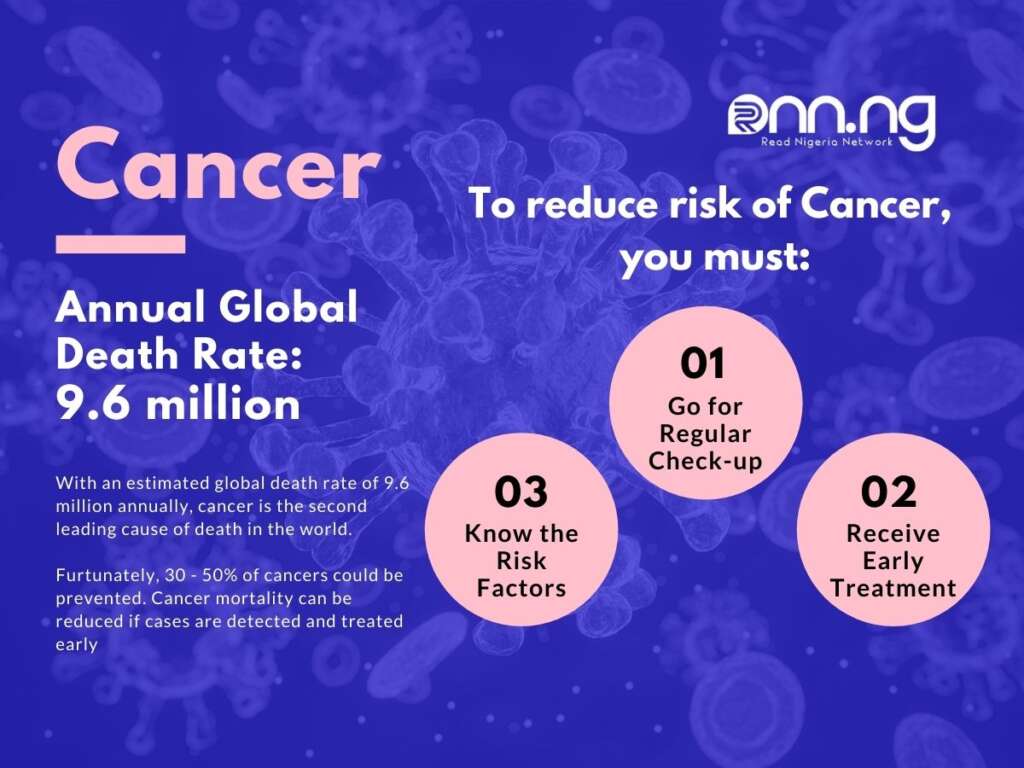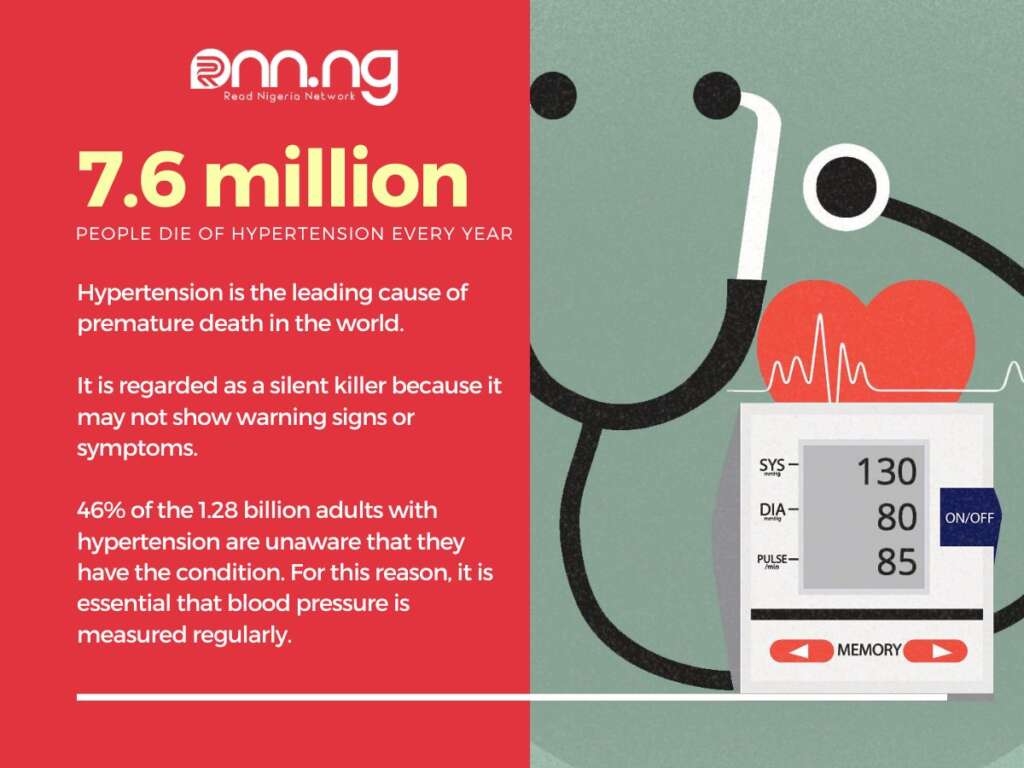Top Lists
Top 12 Most Underrated Health Issues Causing Premature Death
Many deaths could have been prevented if early precautions were taken. See the list of Top 12 Most Underrated Health Issues Causing Death.

Indeed, the first step towards maintaining good health is awareness – understanding the potential risks and taking proactive measures to mitigate them. Often, there are health issues that fly under our radar, either dismissed as minor or ignored in the hope that they’ll simply fade away.
However, relying on luck or assuming that these seemingly insignificant ailments will resolve on their own is a gamble. Some health issues, left untreated, can escalate into serious threats to our well-being. The danger lies in only addressing them when they manifest as a breakdown, a reactive approach that may come too late.
Prevention is the key. Many deaths could have been prevented if early precautions were taken. This is why you have to take your health seriously. Regular check-ups serve as crucial checkpoints, helping detect potential issues before they escalate.
Recognizing and addressing irregularities promptly is essential, and seeking advice from medical professionals ensures that we are taking the right steps towards our well-being.
Here is a list of the top 12 most underrated health issues causing death and the annual death rate.
- Heart Disease – 9 million+
- Cancer – 9.6 million
- Hypertension – 7.6 million
- Stroke – 5 million
- Chronic Stress – 5 million
- Lower Respiratory Tract Infection – 4 million
- Chronic Obstructive Pulmonary Disease – 3 million
- Diabetes – 1.5 million
- Kidney disease: 1.2 million
- Malaria – 627 000
- Alzheimer’s disease
- Poor Sleep
1. Heart Disease
Over the past 2 decades, heart disease has stubbornly held its ground as the number one cause of death worldwide. The World Health Organization’s 2019 report paints a grim picture, with nearly 9 million lives claimed annually by this relentless adversary.
People die from cardiovascular disease every 38 seconds, which is around 2,403 deaths per day. Heart disease isn’t a single entity; it’s a collection of conditions, from the silent buildup of plaque in arteries to irregular heart rhythms. It’s an equal-opportunity threat that can affect anyone.
Despite the common belief that it’s more of a guy thing, heart disease doesn’t discriminate. Factors like smoking, carrying extra weight, being over 55, or having a family history of heart disease put both men and women at risk.
2. Cancer
With an estimated global death rate of 9.6 million annually, cancer is the second leading cause of death in the world.
Data published by the World Health Organization (2018) indicates that approximately 400,000 children are diagnosed with cancer annually.
While some forms of cancer may have a hereditary link, WHO emphasizes that 30 – 50% of cancer cases could be prevented. This highlights the importance of understanding the risk factors and implementing preventive measures.
Regular check-ups are crucial in the fight against cancer, as early detection and treatment significantly reduce mortality rates. Whether it’s Breast Cancer, Throat Cancer, or other variations, staying informed about risk factors, prevention tips, and incorporating cancer-fighting fruits into your diet are vital steps in lowering the overall risk of cancer.
Recommended: Does giving head to your woman cause throat cancer?
3. Hypertension
Hypertension — or elevated blood pressure — is one of the most underrated health issues in the world, contributing significantly to premature deaths. Shockingly, over 7.6 million people lose their lives to hypertension each year.
Out of the 1.28 billion adults that have hypertension globally, WHO reveals that about 46% are unaware that they have the condition.
It is regarded as a silent killer because it may not show warning signs or symptoms. However, regularly checking your blood pressure can help you reduce the risk.
Several factors contribute to hypertension, including a family history of the condition, unhealthy diets, physical inactivity, the use of tobacco and alcohol, diabetes, or kidney diseases. Especially for those over 65, awareness of these risk factors becomes crucial in the ongoing battle against this pervasive health threat.
4. Stroke
Stroke is a leading cause of long-term disability and it carries a high risk of death. Annually, 15 million people experience a stroke, resulting in 5 million deaths and an additional 5 million left with enduring disabilities.
Statistically, high blood pressure and smoking are the leading cause of stroke. Additionally, factors such as being overweight or obese, physical inactivity, diabetes, and high cholesterol contribute to an increased likelihood of experiencing a stroke.
5. Chronic Stress
Stress is another serious health issue; about 5 million deaths are attributed to stress every year. Understanding that chronic stress can lead to problems later in life, ranging from depression to heart disease and affective impairment may help stress management become a goal for you.
In our fast-paced world, many tend to overlook stress, considering it a normal part of life. However, the long-term consequences can lead to significant wear and tear on both mental and physical well-being. Chronic stress is a global epidemic. It is important to actively seek ways to find relief and incorporate stress management as a fundamental goal for a healthier and more balanced life.
6. Lower Respiratory Tract Infection
Lower respiratory tract infection kills more people than human immunodeficiency virus (HIV), Tuberculosis (TB), and malaria combined. Nearly 4 million people die of lower respiratory tract infection annually.
Tobacco smoke, dust, chemicals, vapors and fumes, allergens, air pollution are the leading causes of the infection. These elements create a perfect storm for lower respiratory tract infections. Symptoms are diverse, ranging from shortness of breath and weakness to fever, coughing, and persistent fatigue.
7. Chronic Obstructive Pulmonary Disease
Over 200 million people in the world are affected by Chronic Obstructive Pulmonary Disease (COPD). Of these, 3 million die every year.
The most important factor leading to the development of COPD is tobacco smoking. Tobacco smoke destroys the lung tissue (emphysema) and obstructs the small airways with inflammation and mucus (chronic bronchitis), leading to the cardinal symptoms of COPD, namely shortness of breath and cough.
Indoor and outdoor air pollution, inhaled tobacco smoke and occupational dust, genetic syndromes (such as antitrypsin deficiency), childhood pneumonia, and other diseases that involve the airways (such as chronic asthma and tuberculosis) are also factors contributing to the development of COPD.
8. Diabetes
Diabetes is one of the leading causes of death in the world. Of the 422 million people in the world living with diabetes, 1.5 million die annually.
It is caused by elevated levels of blood glucose (or blood sugar}, which can increase the risk of dangerous complications, including stroke and heart disease.
Type 1 diabetes is a chronic condition in which the pancreas produces little or no insulin by itself while type 2 diabetes occurs when the body becomes resistant to insulin or doesn’t make enough insulin.
Not all forms of diabetes stem from the consumption of sugar, a person being overweight or leading an inactive lifestyle. Some are present from birth and can be life-threatening.
Here is everything you should know about diabetes: The causes, symptoms, types, and prevention.
9. Kidney Disease
When it comes to kidney disease, its impact extends beyond the kidneys. The disease interferes with the body’s ability to effectively clean the blood, hampers red blood cell production, and disrupts the synthesis of vitamin D crucial for bone health.
Kidney damage leads to the accumulation of waste products and excess fluid in the body. This buildup manifests in various symptoms such as swelling in the ankles, weakness, poor sleep, and shortness of breath. Without proper treatment, the damage can escalate, posing a serious threat to life as the kidneys may ultimately cease to function.
10. Malaria
In Nigeria, the highest burden of disease falls on the shoulders of malaria. This relentless health challenge is particularly severe among pregnant women and children under 5 years old, given their lower levels of immunity.
Malaria’s impact extends far beyond mere inconvenience. It poses a grave threat to vulnerable populations, leading to increased morbidity and mortality rates.
11. Alzheimer’s Disease
Alzheimer’s Disease doesn’t pull punches – it takes a toll on memory and important mental functions. When it shows up, memory loss and confusion become the main players in this challenging game.
Unfortunately, there’s no magic cure in the books, but there are medications and strategies to manage the symptoms temporarily. As the search for a definitive cure presses on, the focus is on making life a bit more manageable for those facing Alzheimer’s.
12. Poor Sleep
The perils of insufficient sleep go beyond just sleep conditions; it transforms into a chronic health risk over the long term. A good night’s sleep is not just a luxury – it’s a cornerstone for building the physical, mental, and emotional resilience needed to navigate the stresses of our modern world. So, prioritizing and nurturing healthy sleep habits is important for sustained well-being.
Wrapping Up
From heart disease and cancer to chronic stress and lower respiratory tract infections, these health challenges silently claim millions of lives each year. However, many of these deaths could have been if early precautions had been taken.
The key takeaway is the need for heightened awareness, early detection, and proactive measures to mitigate the impact of these underrated adversaries. Prioritizing regular check-ups, adopting healthier lifestyles, and understanding the risk factors associated with these health issues are crucial steps toward a longer, healthier life.
You may also like to read Optimal Diet For Mental Health



